To re-visit Cambodia after 4 years is a whole new adventure, things that formed our daily lives back in 2012 were dusty and forgotten. The moment we arrived in Phnom Penh, smelled the country, felt the heat as a blanket and entered a Tuk Tuk (scootertaxi) everything came back.
The last time we were living here for only 2 months, I started my PhD research on dementia in Cambodia. And I soon discovered the dangers in a new society with pre fixed ideas and concepts, like the “sickness” dementia. Now we are back 3 months to full fill our joint research on elderly in different countries, with the main question: How is it to be old here?
We found an apartment, settled in, found an assistant who speaks Khmer and English, but how to start? While walking our neighbourhood, we elderly people standing in shops, walking with bald heads in Buddhist clothes, begging on the streets, working at the market. The next day we met Professor Thy Naroeun, head of the Sociology department of the Royal Phnom Penh University.
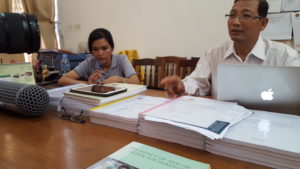
He told us that demographically speaking, elderly do not exist in Cambodia. Unlike Europe, only 4 percent of the population is above 65 years of age. There are few government programs to support them, and NGO’s focus mostly on youth and families.
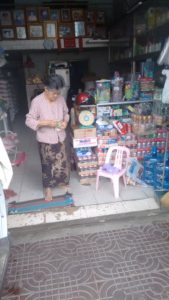
So we went to the elderly in our neighbourhood and asked them how they lived, with whom, how old they were, and if we could come back later to interview them and make a documentary. Everybody was very friendly and agreed to our coming back and interviewing them. We learned that most of them, like Nkek (83), Mong Spaath (84) and Lai Lee (76) indeed are living with 1 of their children, and help with the daily chores and care for the small childre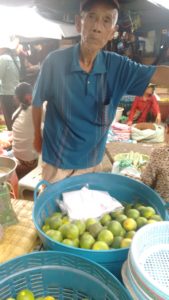 n. Some, like Pom (80) lived in the Pagoda, a Buddhist temple, for more then 20 years. Others, like Tchun (76) sat on the street begging for money for food and their rent, they have children, but their children do not care for them.
n. Some, like Pom (80) lived in the Pagoda, a Buddhist temple, for more then 20 years. Others, like Tchun (76) sat on the street begging for money for food and their rent, they have children, but their children do not care for them.
This raised a lot of information and even more questions. To start with one of our questions: how and why does a man like Pom comes to live in a Pagoda for more then 20 years? The question asked to mister Pom himself, or the head monk of the Pagoda, offered little explanation. Luckily we spoke to Thy Naroeun again, and he brought professor Sina Puch, who researched elderly in Cambodia before. The insights she had helped to understand more of the way things work for elderly in Cambodia. She will be working with us during the coming months. Our first field trip together was to the Pagoda.
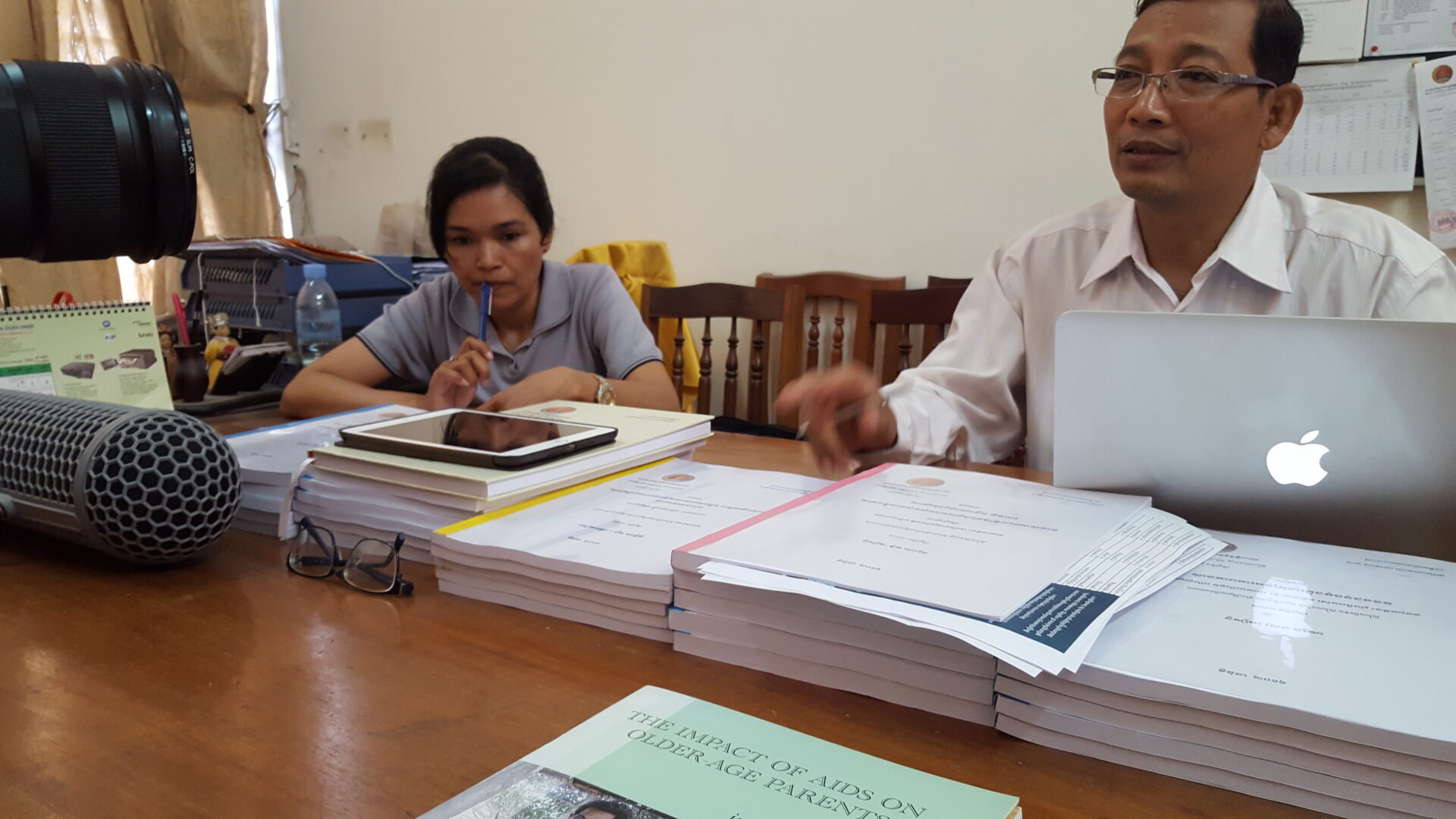
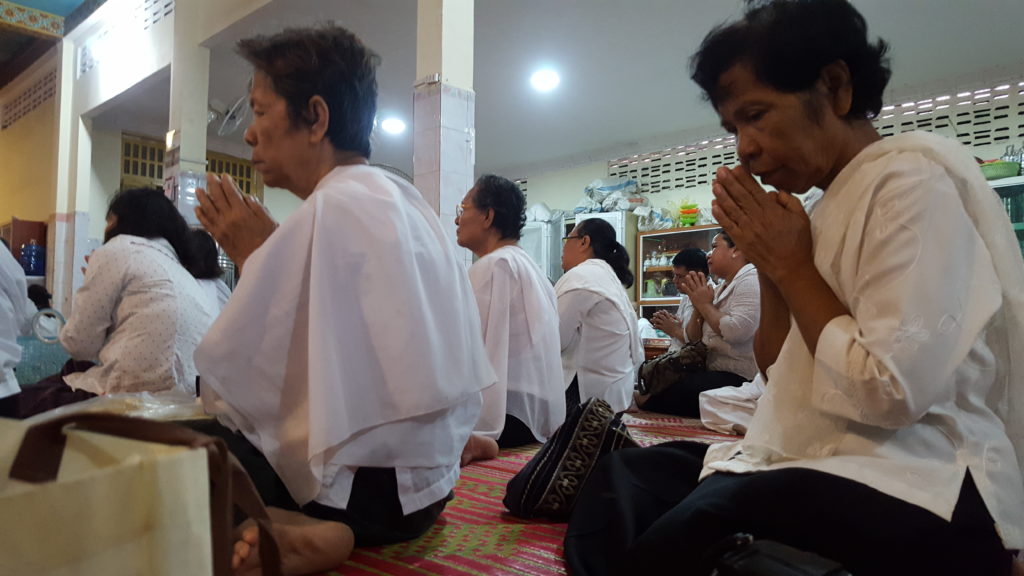
2 thoughts on “Starting our research in Cambodia”